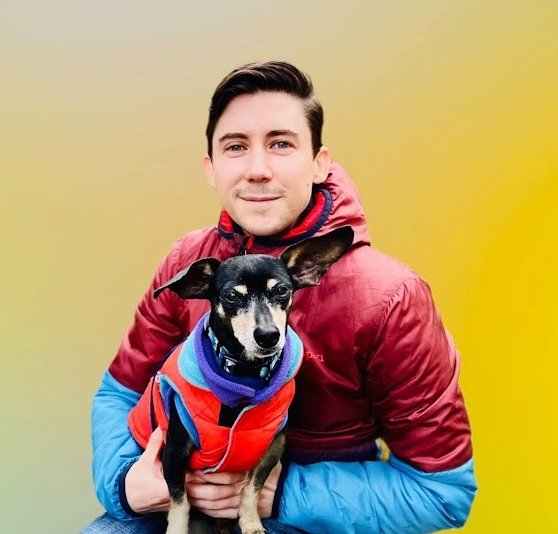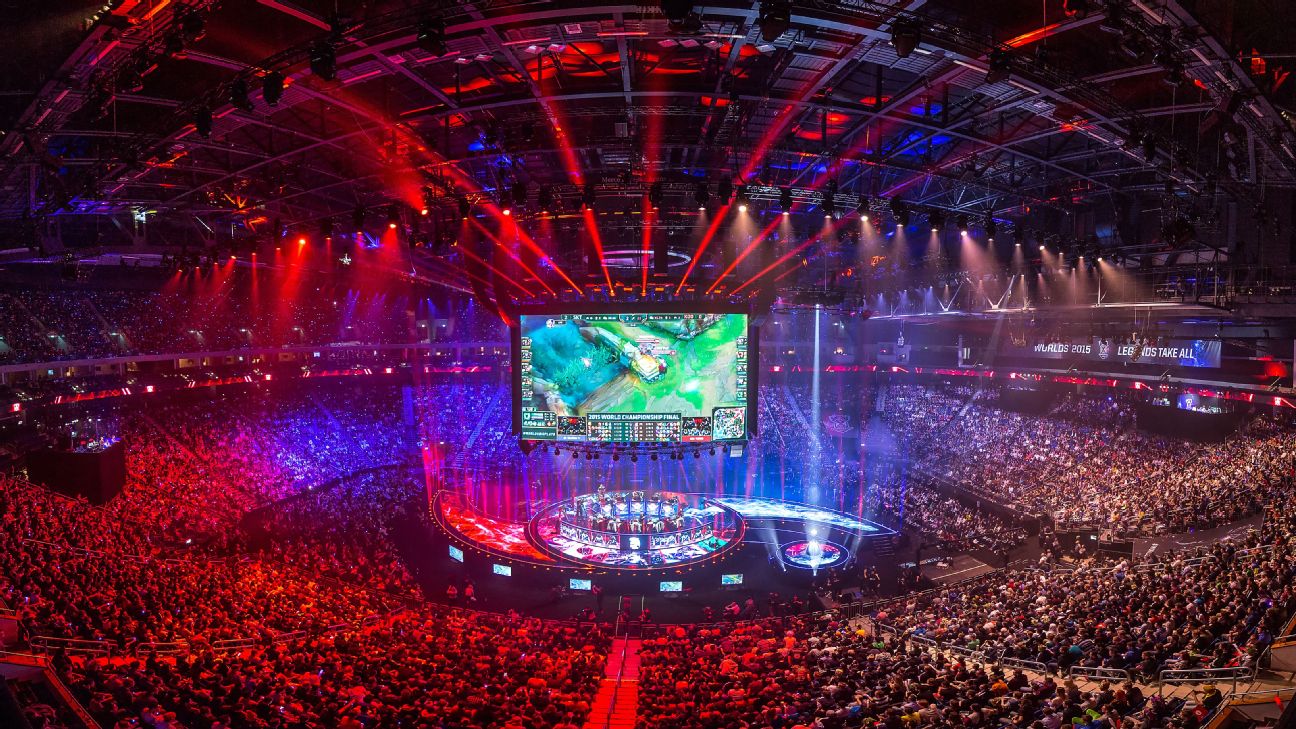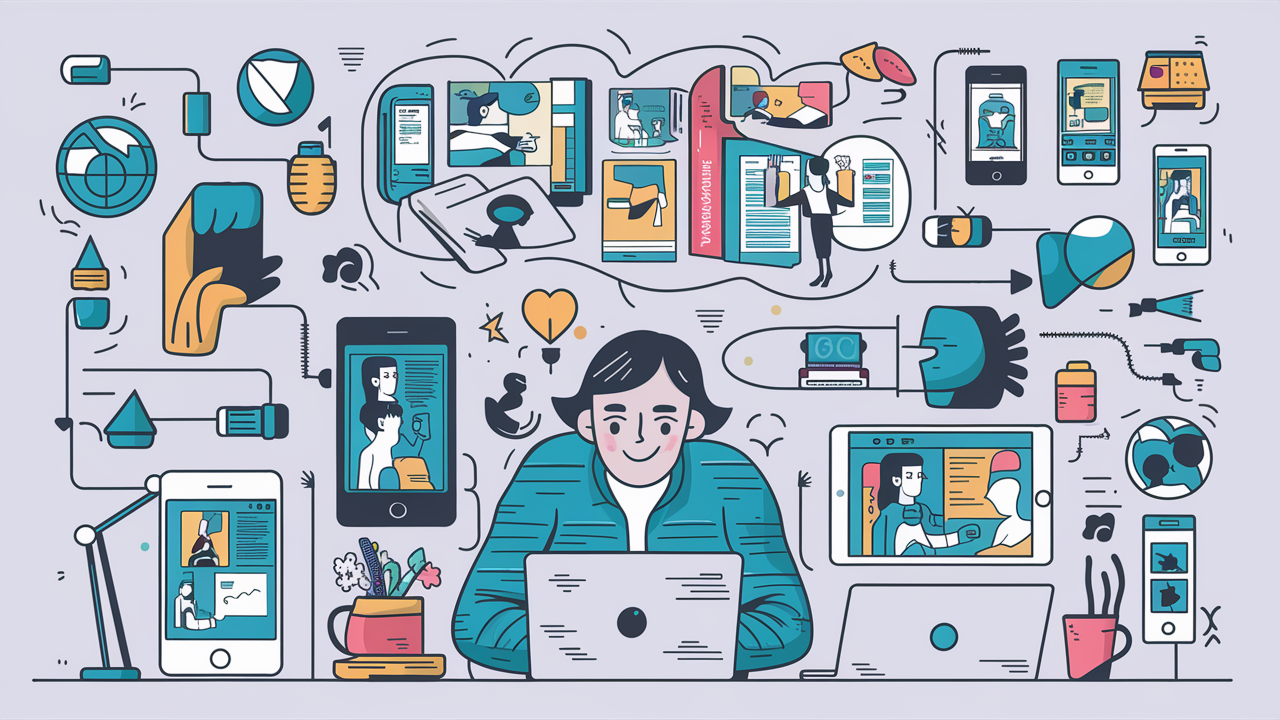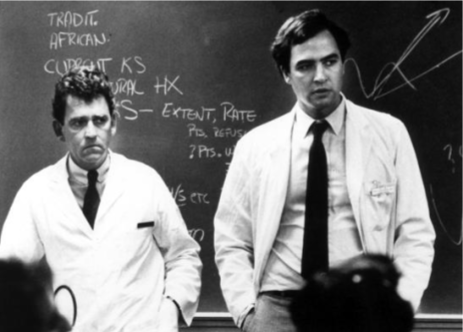micah rajunov
PhD, Work & Organizations
University of Alberta

My research explores how social, technological, and market disruptions are redefining our understandings of work. Disruptions like the pandemic, digital platforms, the gig economy, or generative AI, are all reconfiguring where we work, when we work, how we interact, and the significance of work in our lives. From the deadly AIDS epidemic to professional video gaming, my research dives into novel or extreme settings that magnify the uncertainty many workers face today. I analyze how these challenges shape people's professional identities and work cultures. I specialize in qualitative methods and inductive theorizing through a mix of ethnographic and digital fieldwork and archival data.
My research interests stem from my own experiences. I've always lived in the in-between: my personal and professional identities are at contradictory and ambiguous boundaries. Before academia, I worked at several tech startups as a software engineer, UI/UX designer, and Head of Awesomeness. I was also a trans health advocate, writer, educator, and consultant. Then someone asked me what my favorite job was, and I answered: school. In short, I'm a small package with a colorful personality.
I graduated from Boston University with a PhD in Management & Organizations in 2024. I'm currently a postdoctoral fellow at the University of Alberta studying LGBTQ+ Entrepreneurship in Canada.
Research
My research is driven by one fundamental question: What does work mean to us?
Historically, the average person could expect to work a specific job, climb a career ladder, or become an expert in a profession, and do this reliably throughout their life. But the nature of work is changing at an unprecedented pace and magnitude. Precarious labor markets, cultural beliefs, and rapidly changing digital technology— structures, ideologies, and tools— are upending how and why we work. The consequence is theoretical and empirical ambiguity about what work is and what work will become: the future of work.
Learn more about my projects in my CV.
Topics
- Occupations
- Identity & Culture
- Technology
- Entrepreneurship
- Qualitative Methods
Between Dream Jobs and Real Jobs

My dissertation takes an in-depth look into the lives and careers of professional competitive video gamers. This project draws on interviews with 75 esports professionals alongside digital ethnographic practices.
At the intersection of sport, technology, and entertainment, esports has created a market for professional gamers— those who make a living playing video games. Esports is a rapidly growing billion-dollar industry capturing a broad global audience. Technology has been essential to its growth, with high speed internet and digital platforms connecting players, developers, sponsors, and audiences.
As a new occupation and industry, esports acts a "cultural space" to make sense of an activity that suddenly becomes work. But professional gaming is more than a job; it is an immersive lifestyle that demands arduous work and personal sacrifices in exchange for fun. Despite the risks, some gamers are willing to take a chance on living out their dream.
Pro gamers, like many of us, are navigating the changing nature of work. We want to pursue a career we feel passionate about, and are willing to make financial, professional, and personal sacrifices. At the same time, our careers are increasingly precarious and uncertain. Professional gaming offers a unique take on how the blurred boundaries of leisure and labor are making it harder to untangle the meaning and value of our time, effort, skills, and selves.
Digital Fieldwork

Today, digital and physical activities are not singular acts or moments; they are seamlessly embedded into our everyday life. Interactions are not only mediated by technology, they are structured by the tools themselves. Studying digital data and digital contexts forces us to re-examine fundamental assumptions and practices about traditional qualitative research methods that were premised on physical co-location and co-present interactions.
The nature of digital data objects— as self-documenting, dynamic, and agentic —alter the spatio-temporal and socio-material boundaries of actors, interactions, and even the field itself. In unpacking digital fieldwork, I explore themes around the limits of what is observable; the possibilities of interactivity with people and/or machines; the circumstances around production and consumption of digital data; and ethical concerns including accessibility and privacy. (Co-author: Felipe Massa)
Experts without Expertise: Professional Identity During the AIDS Epidemic

We build our professional identities around our "what we do"— the specific knowledge and skills that help us solve complex problems. But how do you define your professional identity when your expertise is suddenly useless?
The HIV/AIDS epidemic challenged deeply held assumptions about medicine and society. AIDS not only affected highly stigmatized and marginalized populations, it was practically untreatable for over fifteen years. Nevertheless, a small group of physicians, later known as AIDS Doctors, saw it as their moral duty to care for these patients. But they soon found themselves at a loss for how to treat and cure patients. Unable to use their expertise, AIDS Doctors questioned the "meaning of medicine"— the foundations of professional identity.
Drawing on in-depth oral histories of over 100 physicians, my co-authors and I explore how AIDS Doctors redefined their professional identity in the absence of expertise. Little did we know when we started this project that these questions would become painfully relevant as the COVID-19 pandemic stopped the world. (Co-authors: Stine Grodal and Mia Chang-Zunino)
Teaching
My teaching is guided by values of growth, empowerment, and relevance. I care about deep learning. In a few years, most students will have probably forgotten the specifics of class concepts and theories. But my hope is that they’ve internalized this knowledge to apply it in their everyday lives.
Courses Taught
The Dynamics of Leading Organizations and People
Spring 2022 & Summer 2023
Questrom School of Business, Boston University
Core introductory undergraduate course for business majors. Covers foundational OB concepts, such as motivation, teamwork, leadership, power, and organizational culture.
Intro to Qualitative Methods
Fall 2021 / Peer-led workshop for PhD Project Members
I co-led this interactive workshop aimed at students unfamiliar with qualitative methods. We covered basic theoretical, epistemological, and practical foundations of qualitative research.
LGBTQ Advocacy

For the past decade I've been a vocal and visible advocate for transgender health. My efforts sprung out of a noticeable lack of resources during my own personal journey. I created a small blog which ended up becoming a popular and much needed resource for nonbinary identities. My personal story was featured in mainstream publications, local magazines, even a documentary. For now, I've stepped away from many of these efforts, but continue to be involved in smaller ways.
Writing
I’m the co-editor of the anthology NONBINARY: Memoirs of Gender and Identity, published in 2019 by Columbia University Press. A few people have spotted it in real physical bookstores! I've also written book chapters, resource articles, opinion pieces, journal articles, and of course, blog posts. Lots and lots of blog posts.
Education & Consulting
I've participated in panels, presented at major trans health conferences, led workshops and trainings, educated health care profesisonals, and supported peers and parents in my community. I've served as a consultant for individuals and small businesses and a hospital. I still sporadically get invited to talks, like this Google Talk about my book and identity in the digital age.
Since you've made it this far, I assume you clearly like me and want to know more about my advocacy, so here's my blog.